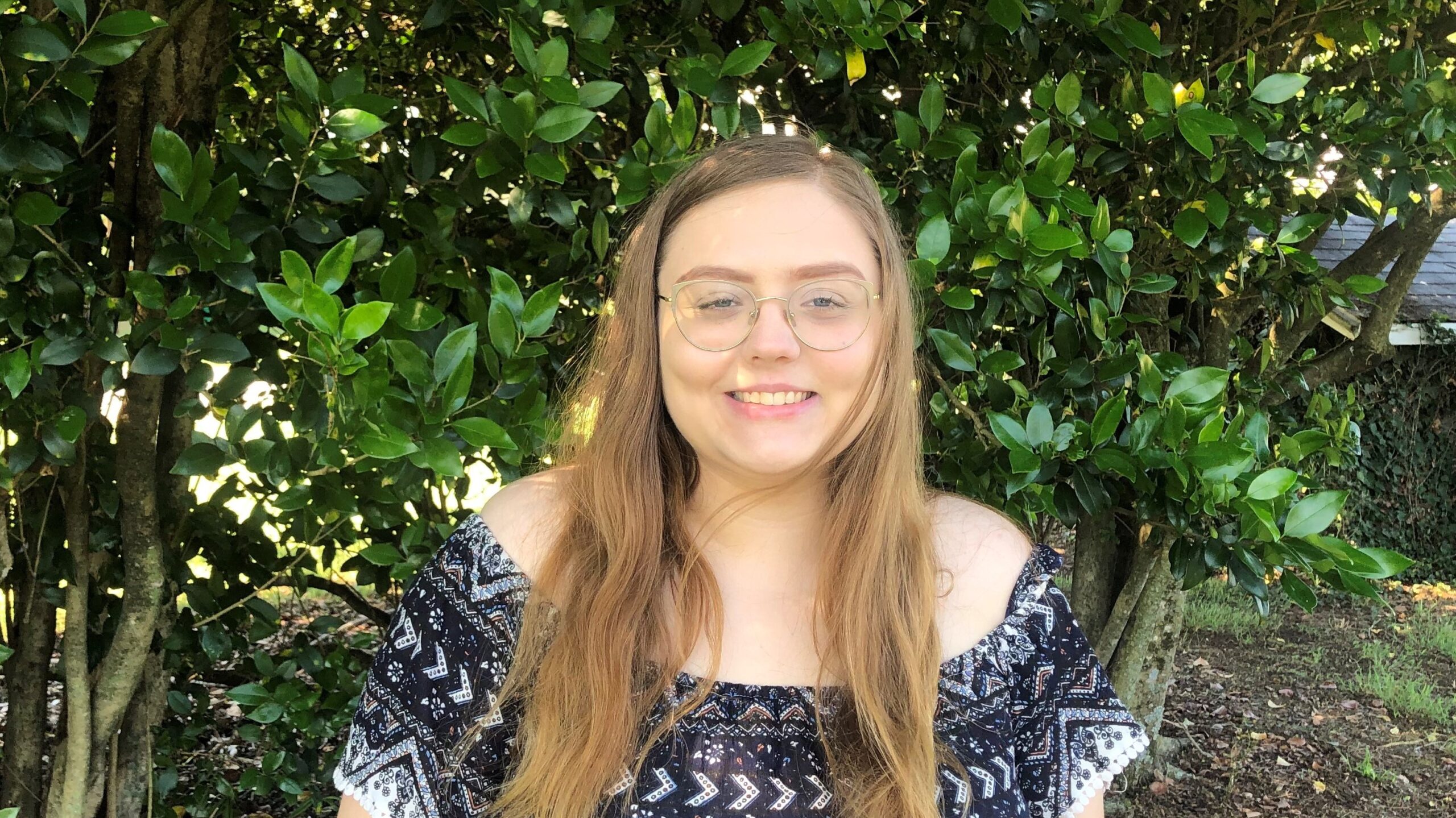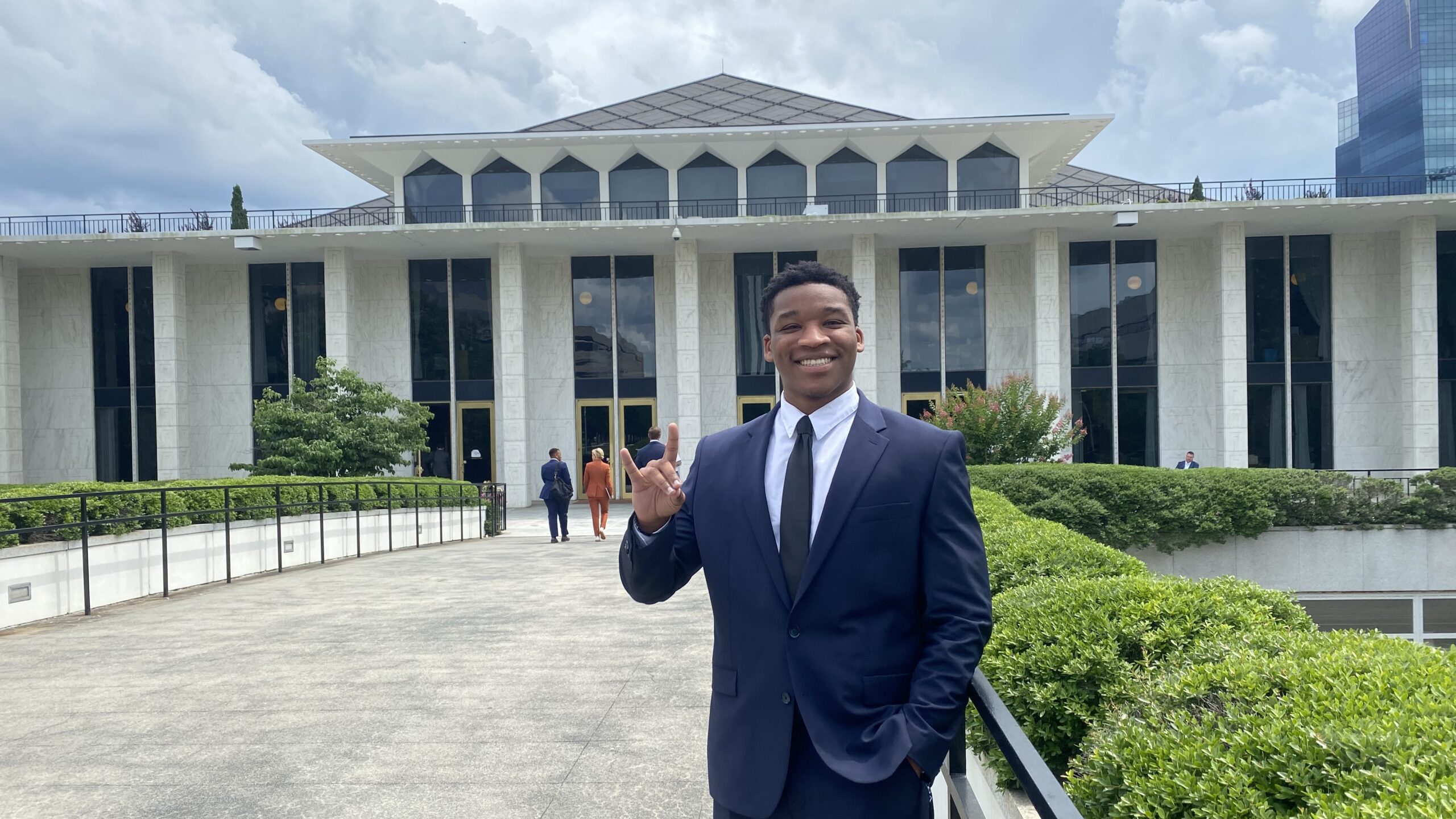Ashtyn Hill Receives Critical Languages Scholarship to Study Urdu

Ashtyn Hill (‘23) has been awarded a 2021 U.S. Department of State Critical Language Scholarship for a summer intensive language and cultural program. Ashtyn, who is a political science major with a concentration in international politics and a minor in French, will study Urdu at the American Institute of Indian Studies in Lucknow, India. Due to travel constraints imposed by the ongoing global pandemic, the program will be virtual this year.
The Critical Language Scholarship (CLS) program is an intensive overseas language and cultural immersion program for American students enrolled at U.S. colleges and universities. Students spend eight to ten weeks abroad studying one of 15 critical languages. The program includes intensive language instruction and structured cultural enrichment experiences designed to promote rapid language gains and cultural fluency, while building relationships between people of the United States and other countries.
Ashtyn has long been fascinated by other languages and cultures. As a high school student, she applied for and won the Congress-Bundestag Youth Exchange (CBYX) scholarship to study in Germany and the YES Abroad scholarship (part of the Kennedy-Lugar Youth Exchange and Study program) to study in Senegal. Ashtyn accepted the YES Abroad placement and spent her last year of high school living with a host family in Dakar.
“Although I took French in high school, it did not fully prepare me for the immersive experience of speaking another language all day everyday. Learning a new language can be scary, because you don’t want to make mistakes or say the wrong thing, but living with my host family forced me to get out of the fear zone and to just try and communicate.”

Ashtyn has been motivated by a keen interest in other languages and cultures for as long as she can remember. She is especially fascinated by the cultures of West Africa and central and south Asia. “In addition to French, my Senegalese host family also spoke Wolof at home so it was a very interesting experience to navigate multiple languages,” she said. “While I liked living in Dakar, I would have loved to have spent more time visiting smaller villages and towns where life is lived in more traditional ways. I hope to return to Senegal after college and spend time in these rural areas to learn more of the Wolof language.”
One of the reasons Ashtyn wants to learn to speak Urdu is to better understand the cultures and political issues of the Kashmir region. “Adapting to life in Senegal was difficult, but despite our cultural differences, we are all human and our common experience as human beings makes us more similar than we think,” she said.
We spoke to Ashtyn about how she’ll use the Critical Language Scholarship to learn more about this region and how her study of Urdu fits into her academic and career plans.
What is your previous experience with Urdu and why do you want to learn more?
I have zero experience with Urdu other than dabbling here and there last summer. However, I have recently become fascinated with the cultures of south and central Asia and want to explore more. I believe learning the language is an important step in being able to understand the people and their culture which would help me have a better comprehension of local political and social issues.
What motivated you to apply for the Critical Languages Scholarship?
I’ve always been interested in different cultures and languages. Learning to communicate in Urdu will better help me understand the region politically and culturally. I also want to have a language learning experience that is as immersive as possible, and the CLS program works hard to make sure their recipients have just that. Mastering a language deemed critical by the U.S. government will also make me a more appealing candidate for a career in international development.
How has the global pandemic affected your program?
Had I received this scholarship during a normal year, I would be spending my summer in Lucknow, India, but CLS had to make a virtual transition. Cultural activities and language study will now be conducted over a computer screen. Also, while we would normally have the opportunity to meet our fellow participants and form friendships with them face-to-face, those relationships will have to be cultivated virtually, along with our relationships with our language partners.
What do you hope to do with your degree after graduation?
I plan to serve with the Peace Corps in Senegal after graduation. After that, I will probably apply for another U.S. Department of State scholarship to complete graduate school abroad. Ultimately, I plan to pursue a career with the United Nations or the U.S. Department of State, focusing on human rights and international development.
Do you have any advice for students who are thinking of applying to programs like the Critical Languages Scholarship?
My advice is: don’t just tell them how much you love or are passionate about a language or a place, because everyone is going to say that. Instead, distinguish your application by describing how and why you are captivated by the language or the place. Also be clear about your goals for participating in the program, what you will do to achieve them and how the program will help you in the long term, especially with your career goals. Paint a picture with your application.
The Critical Language Scholarship, a program of the U.S. Department of State, is part of a wider government initiative to expand the number of Americans studying and mastering foreign languages that are critical to national security and economic prosperity. CLS plays an important role in preparing students for the 21st century’s globalized workforce and increasing national competitiveness. CLS participants are expected to continue their language study beyond the scholarship period, and later apply their critical language skills in their future professional careers. Contact NC State’s University Fellowship Office to learn more about applying to this program.


